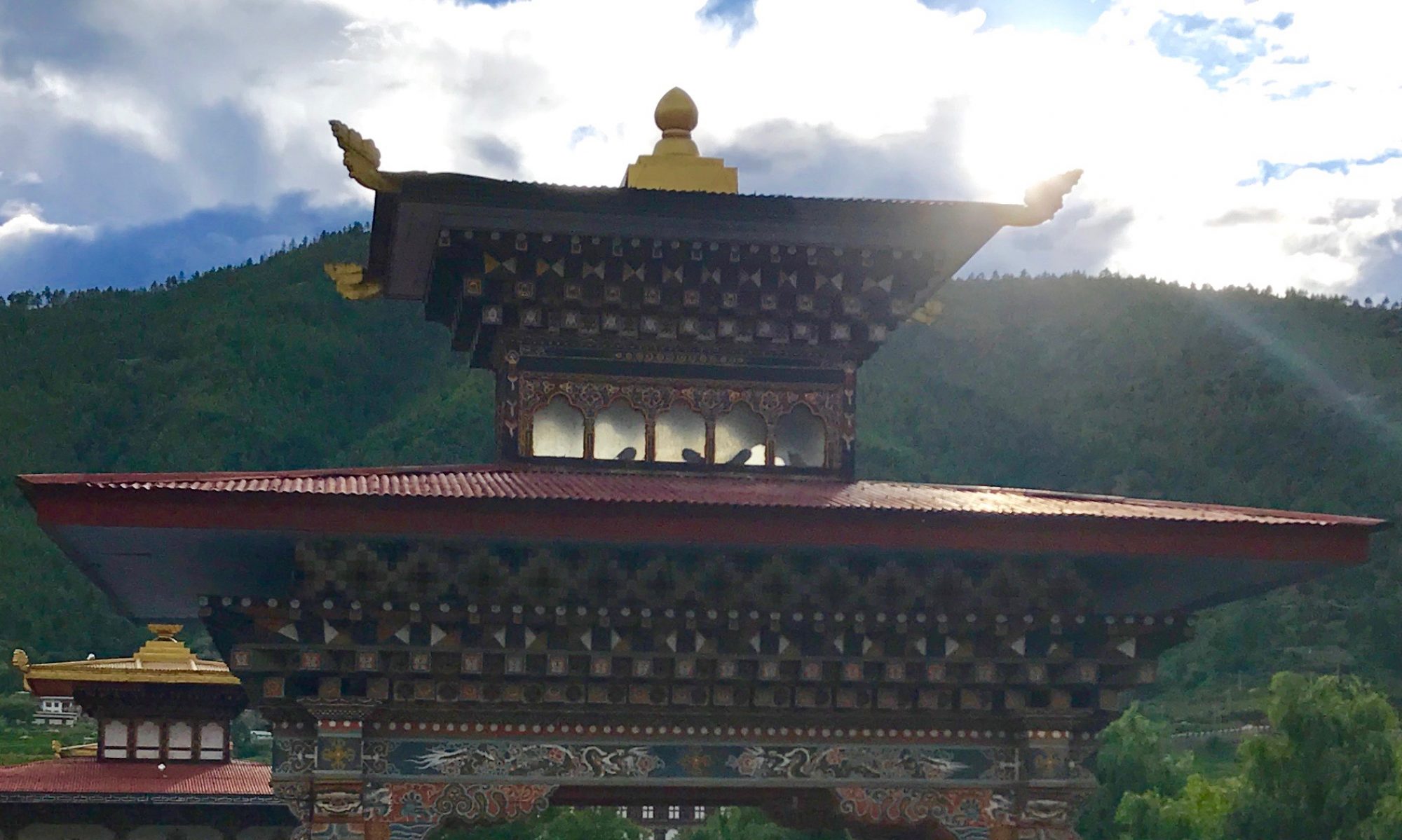Our third full day in the country began with the inauguration of the new law school, right at the side of the resort. There were reports of the Queen mother attending, as well as the Princess (the current King’s sister). We dressed up, just to partake in the sense of ceremony.
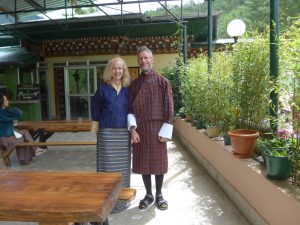
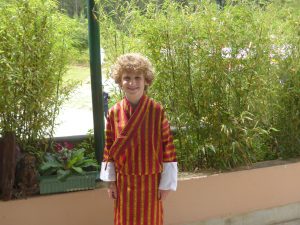
The resort staff were delighted that we would have the opportunity to see their royalty—they were also delighted to help us get dressed in traditional clothing. It was a task requiring many hands!
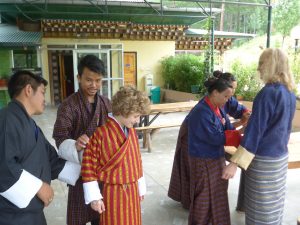
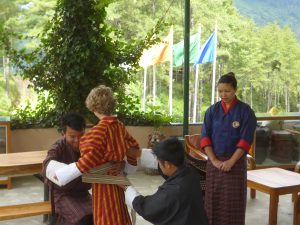
The law students milled around nervously, and then lined up in their finery.
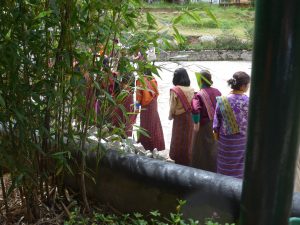
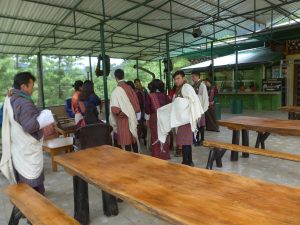
Mark was excited to be participating, too: he pointed out the sand mandalas lining the path to the inauguration venue.
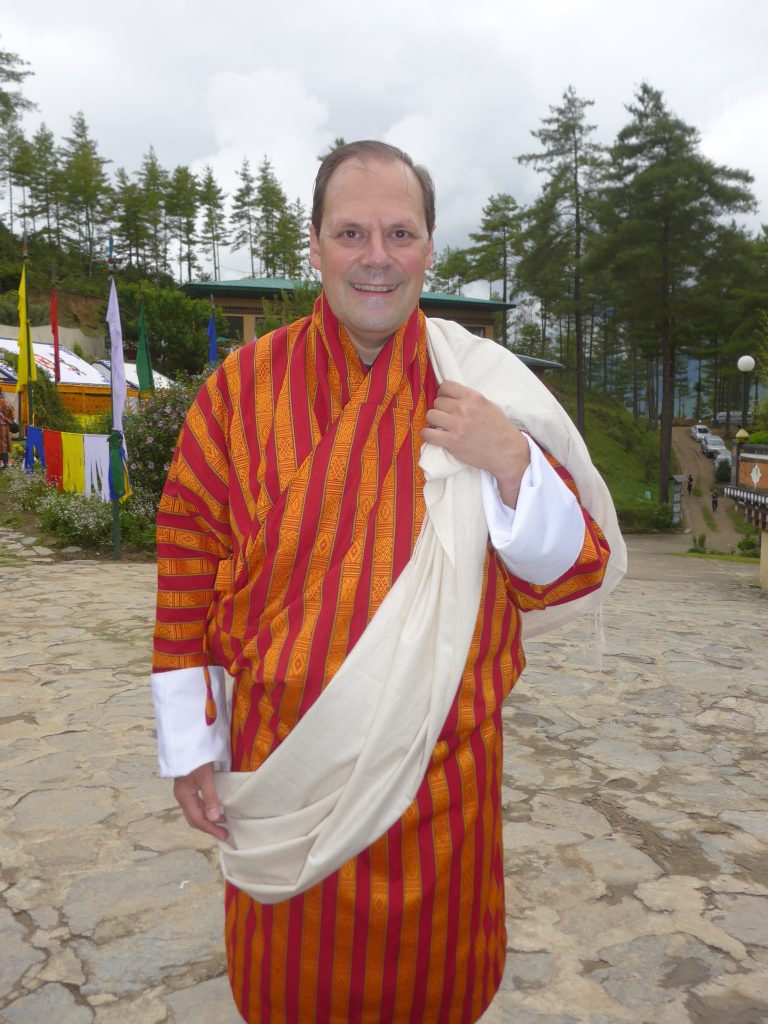
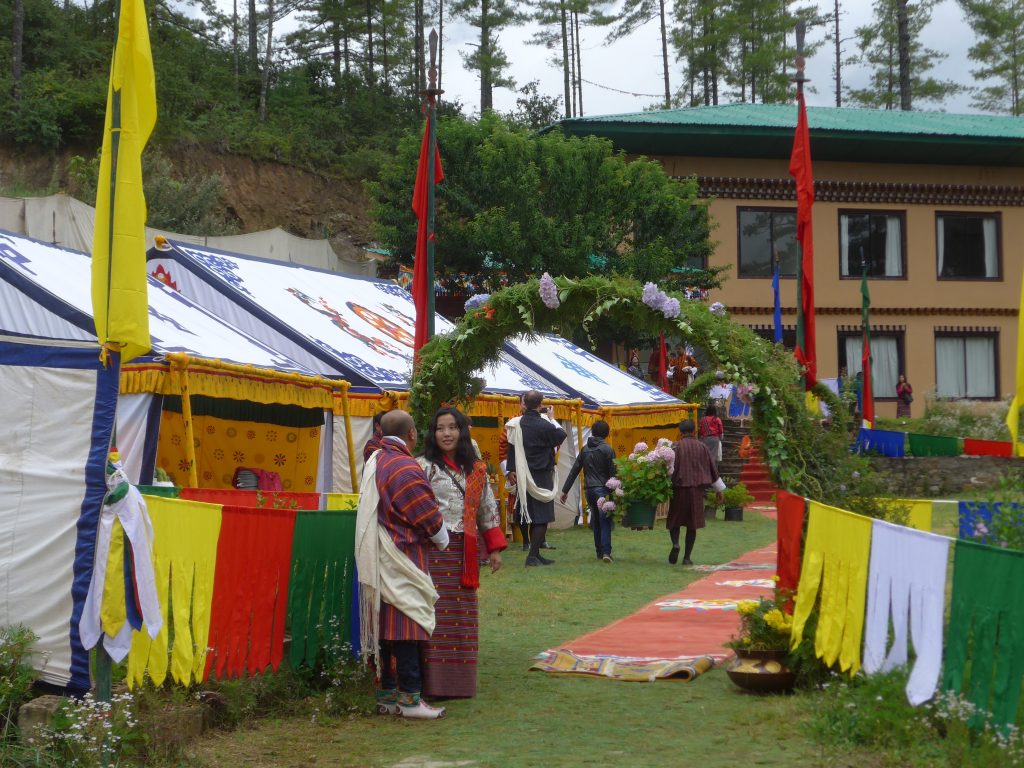
Once the road was clear, we went out with Ugyen for a day of sightseeing. First we went to an expat café, Ambient, where there was something to please every palate in the family.
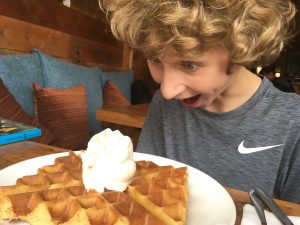
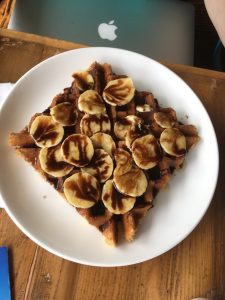

Across the street, below, was a prayer wheel that Jeremy loved to spin.
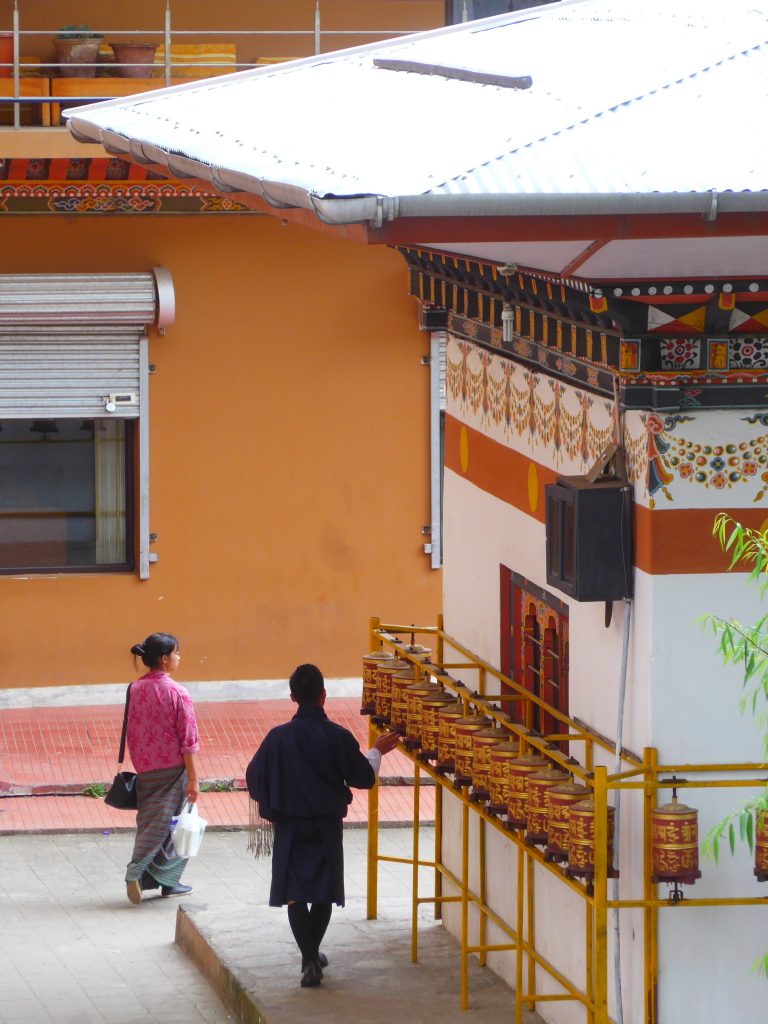
I liked watching the trash truck go by: instead of people on the truck gathering trash, people in the buildings bring their trash out as the truck goes by. (But what if you’re not present at the right moment, I wonder?)
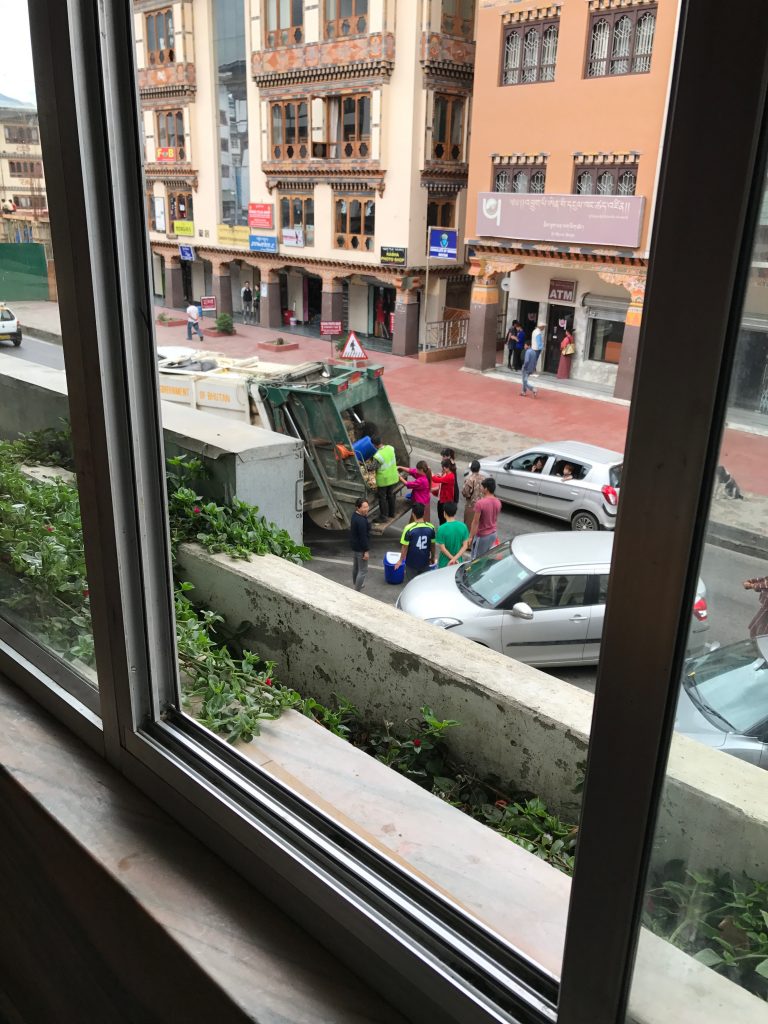
James prefers looking at storefronts, including displays of darts (another national pastime).
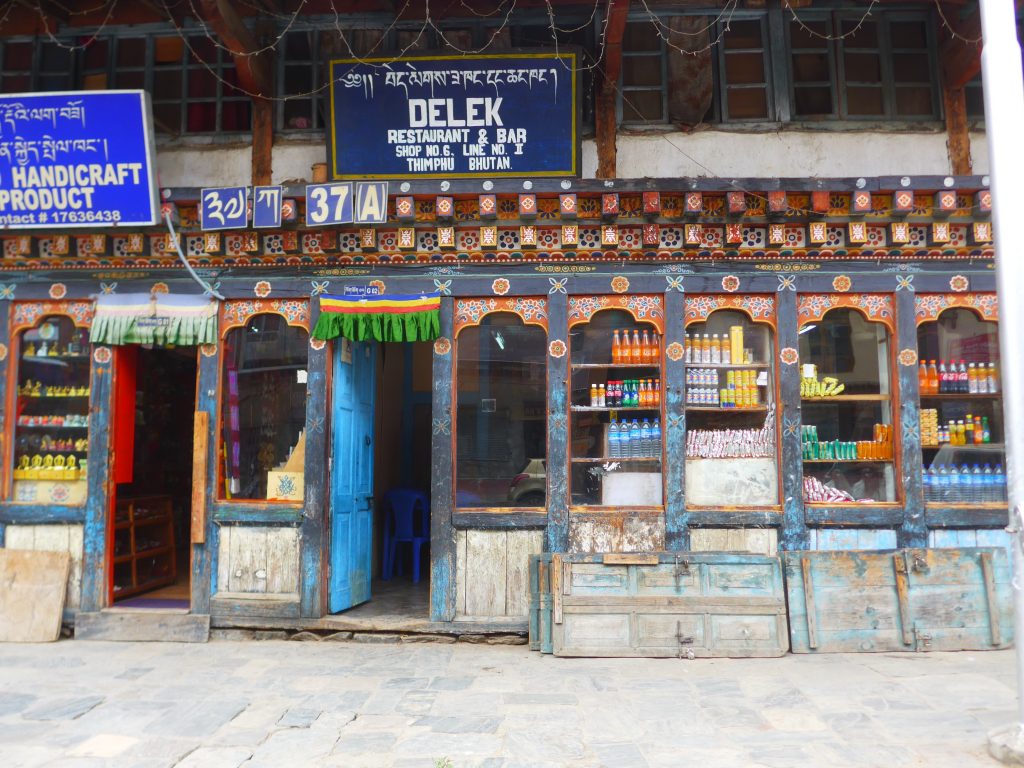
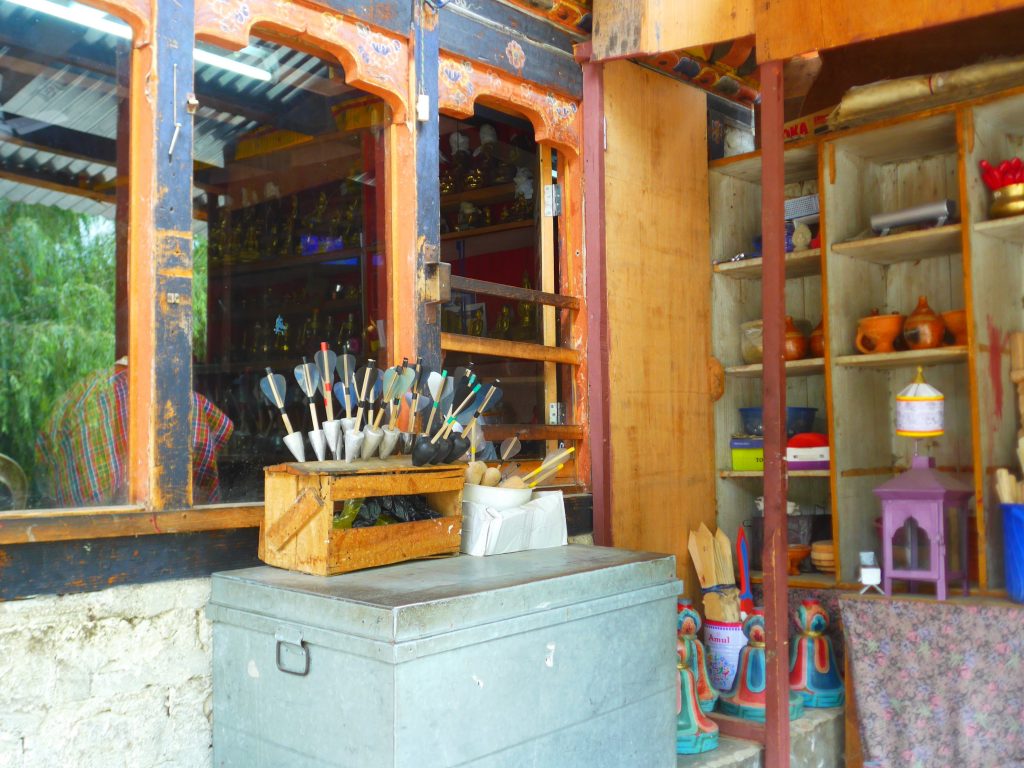
After brunch, we went to a traditional paper-making shop, where the paper steaming on the drying racks seemed to replicate the steaminess of the climate outside, oscillating between clouds and misty rain.
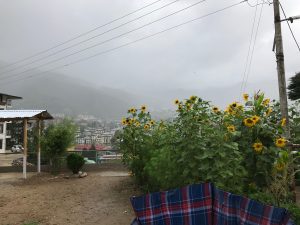
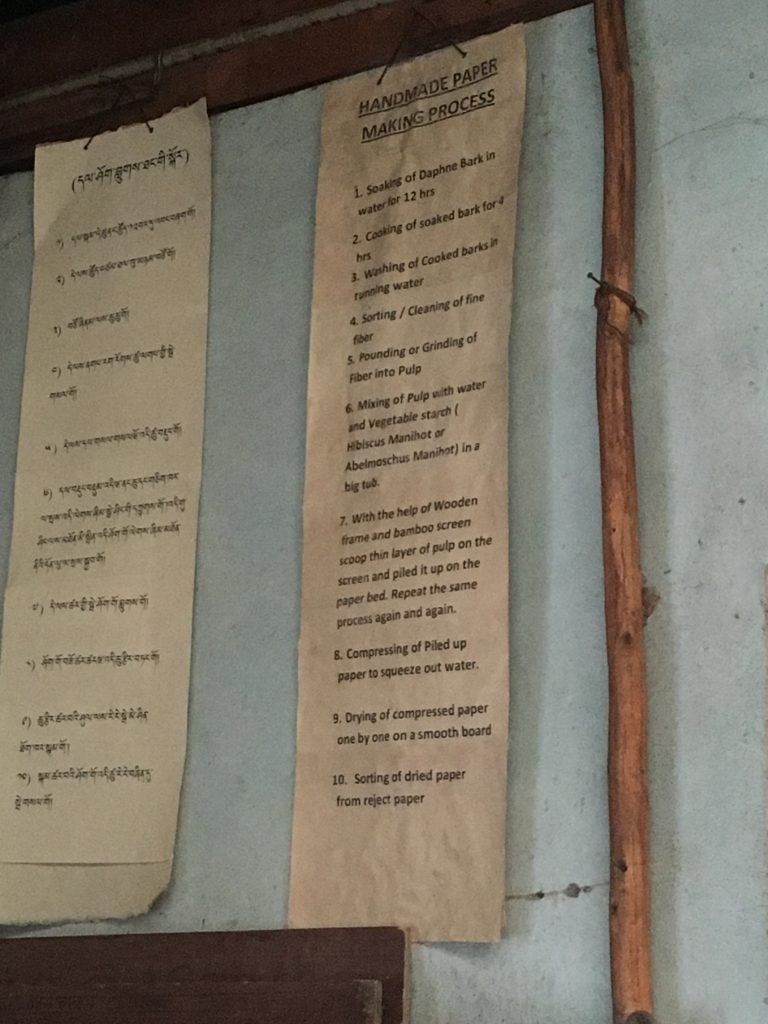
First, the bark of the daphne bush is soaked and stripped; then it is boiled into pulp.
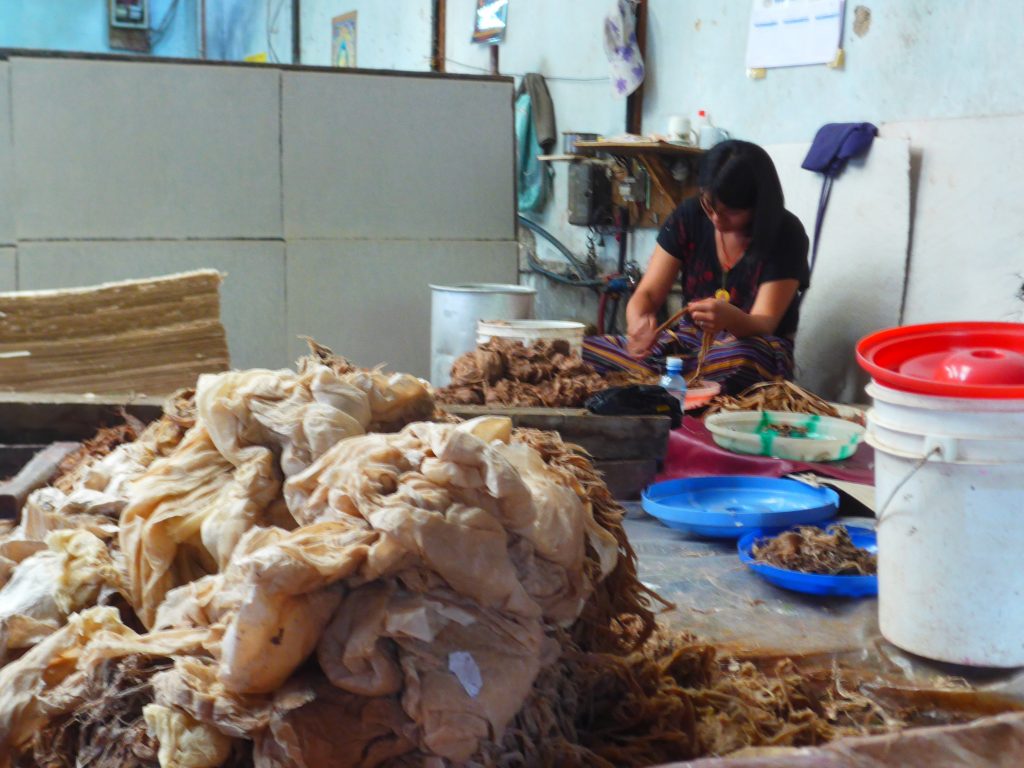
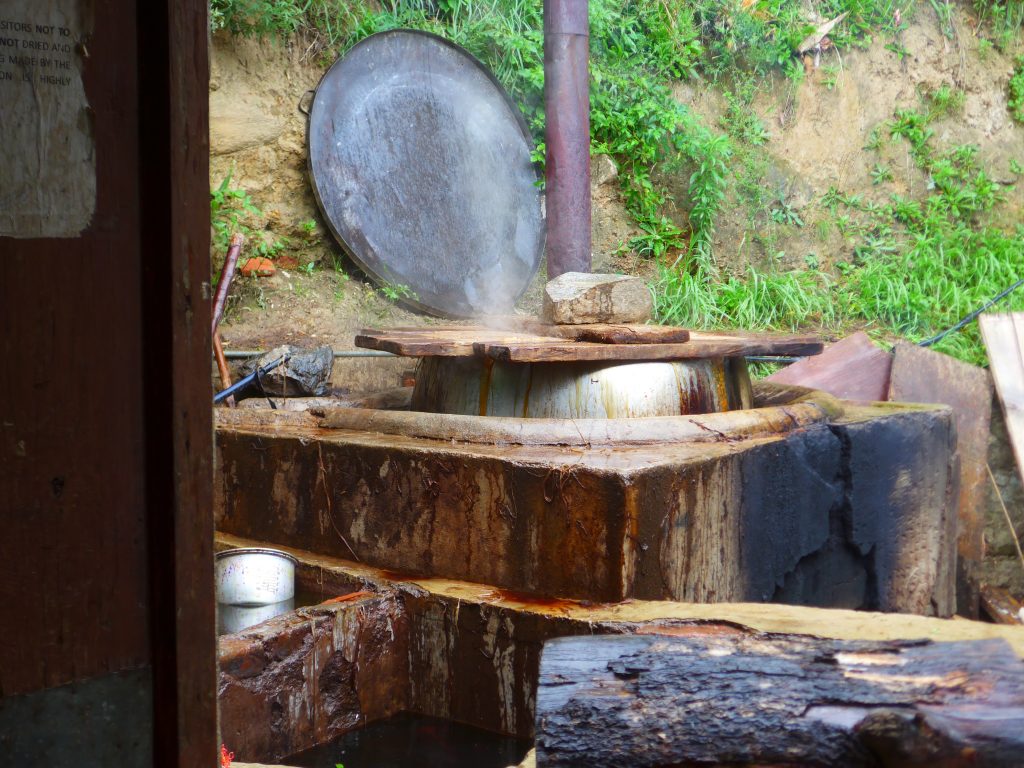
The pulp is put into tanks of water and then a frame is dipped into the tank, raised with pulp, and the excess water is shaken out (and left to drip off, briefly).
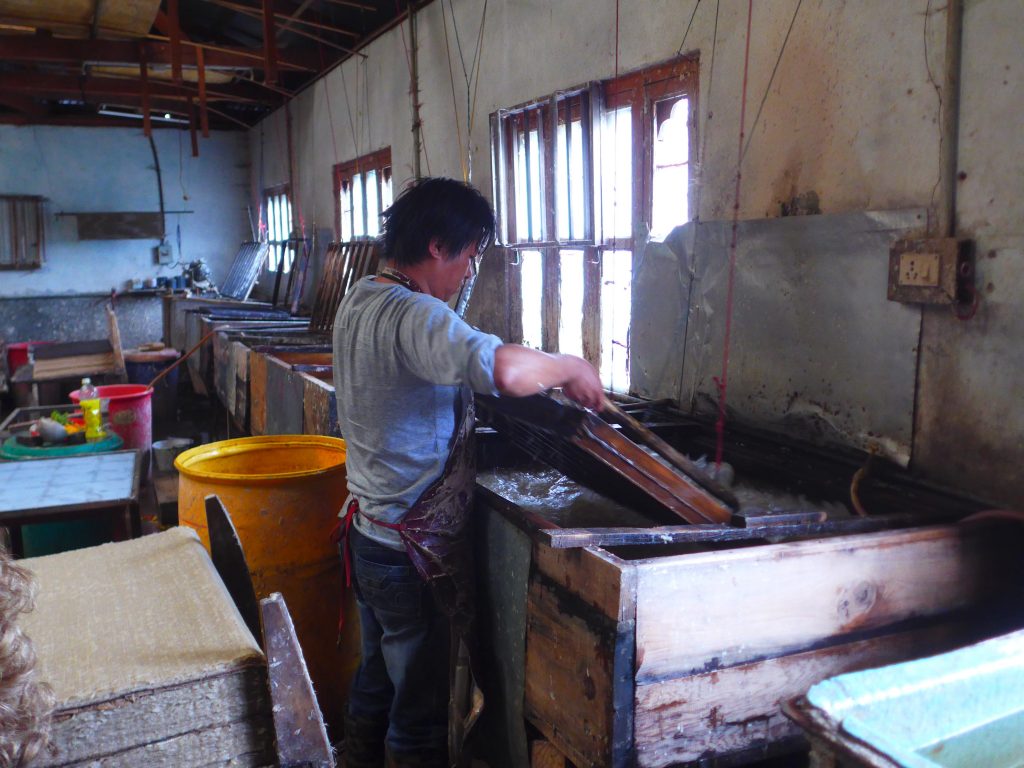
Then the sheet of damp pulp is removed from its bamboo frame and put onto a pile in the middle of the room.
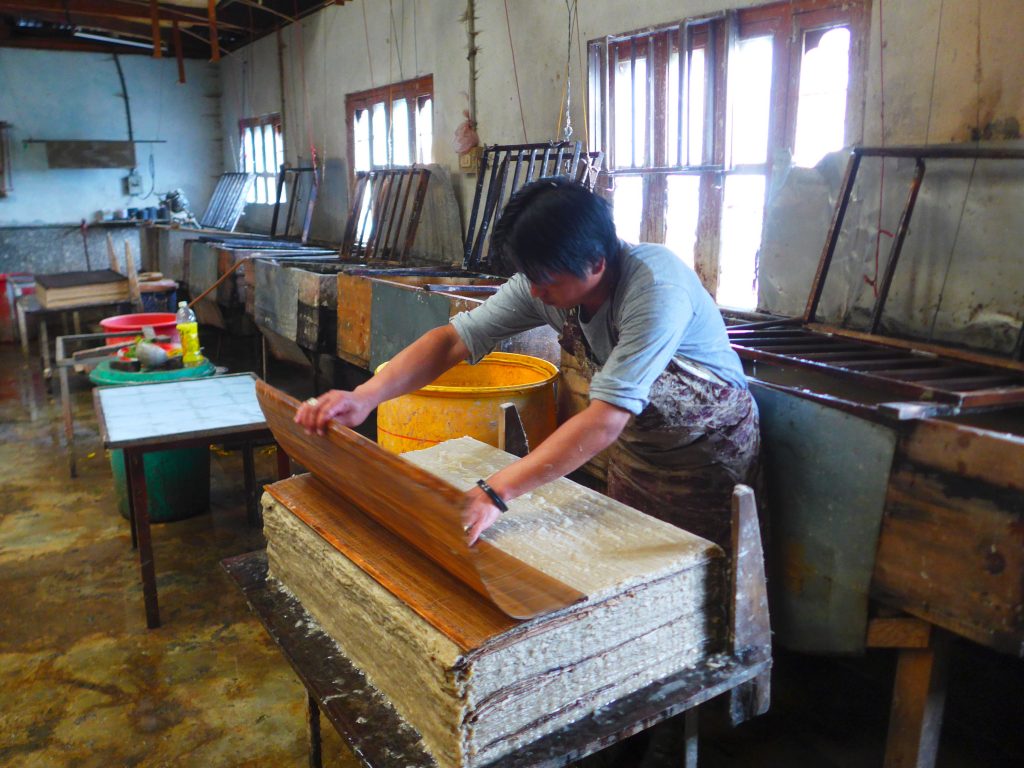
Another man picks up the top sheets and sets them to dry on a series of drying easels.
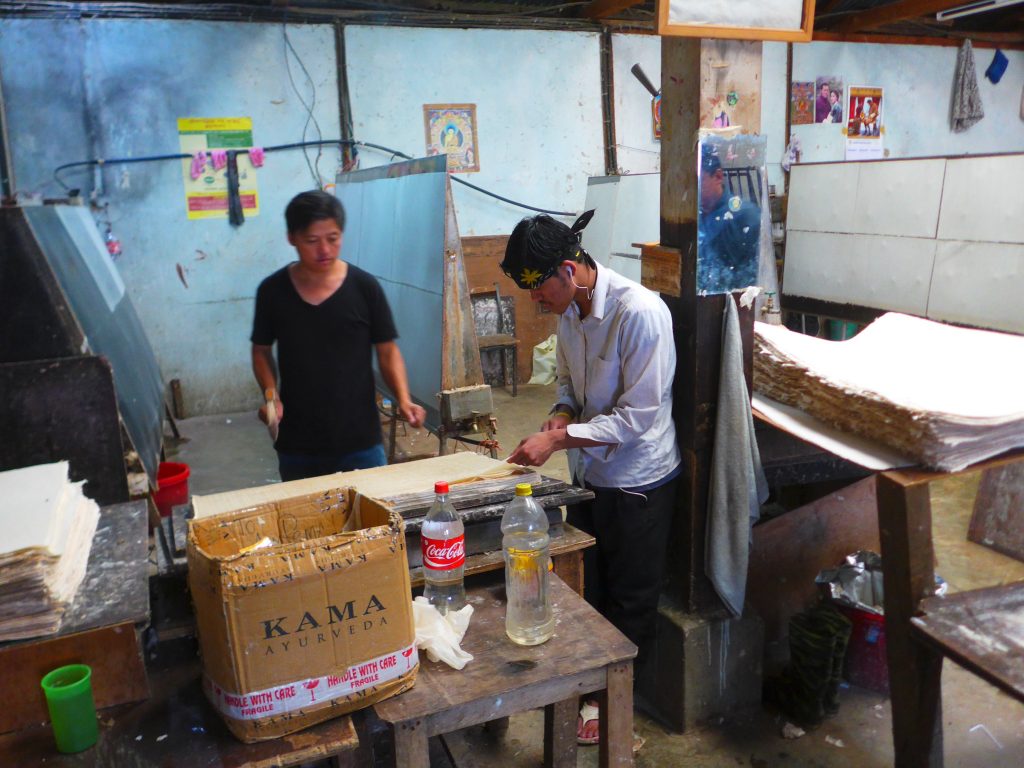
Once they steam dry, they are set onto another pile and replaced by other drying sheets.
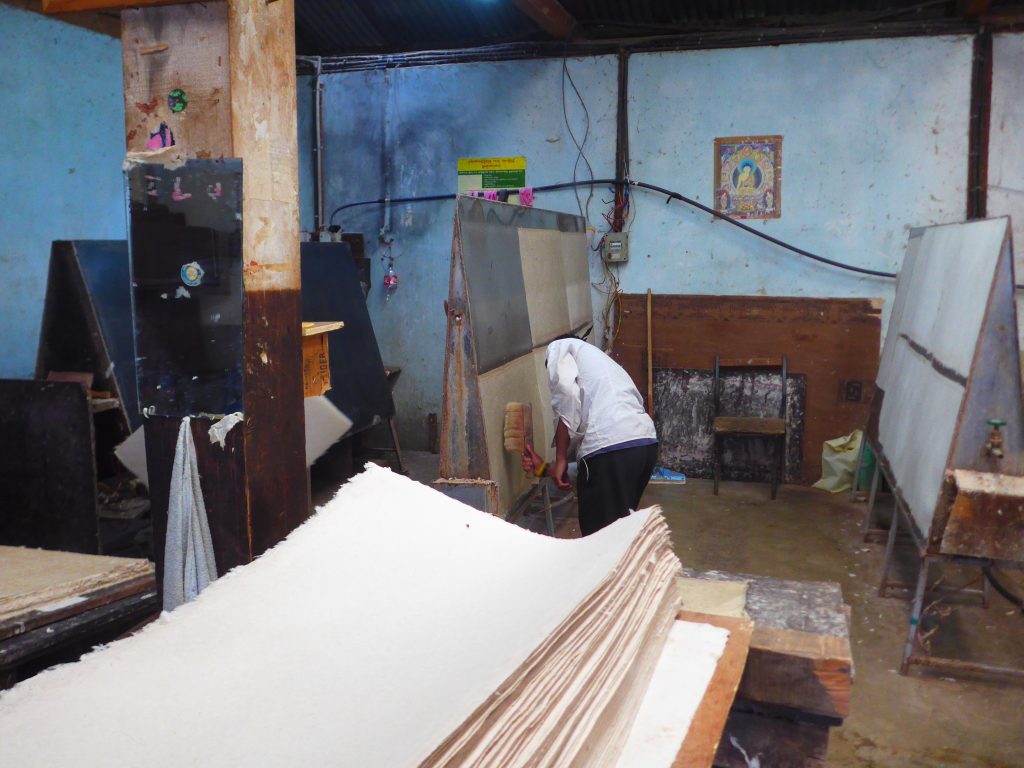
Weights help the sheets remain flat.
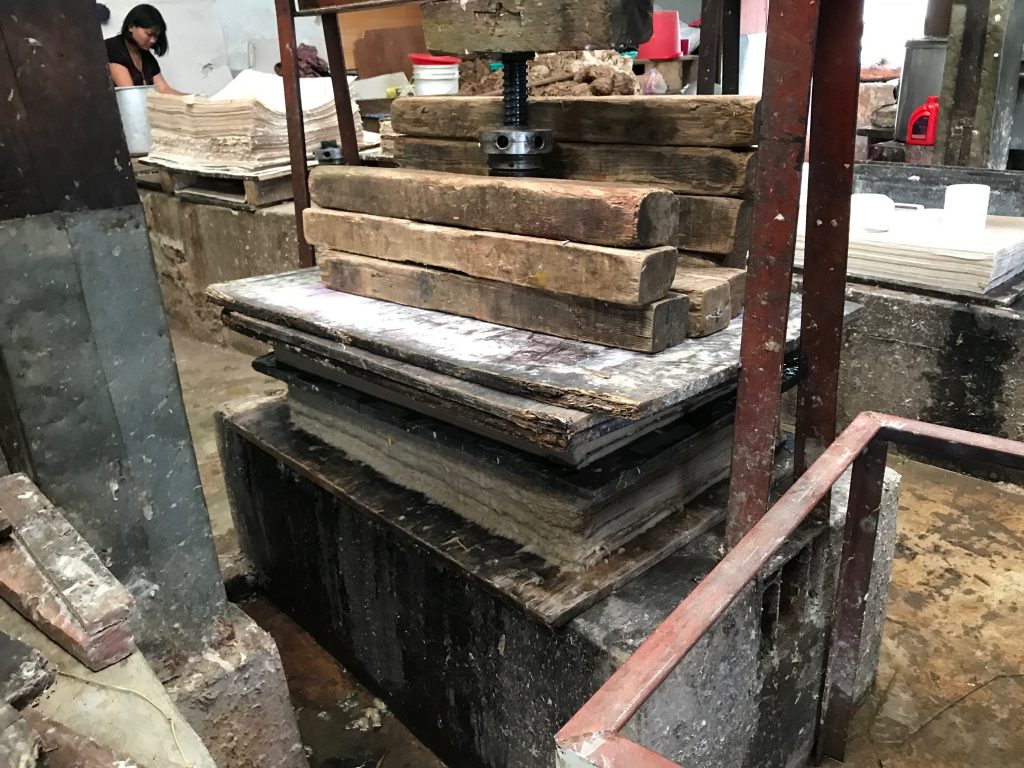
In another room, women (and one male supervisor) make paper goods, such as bags, envelopes, boxes.
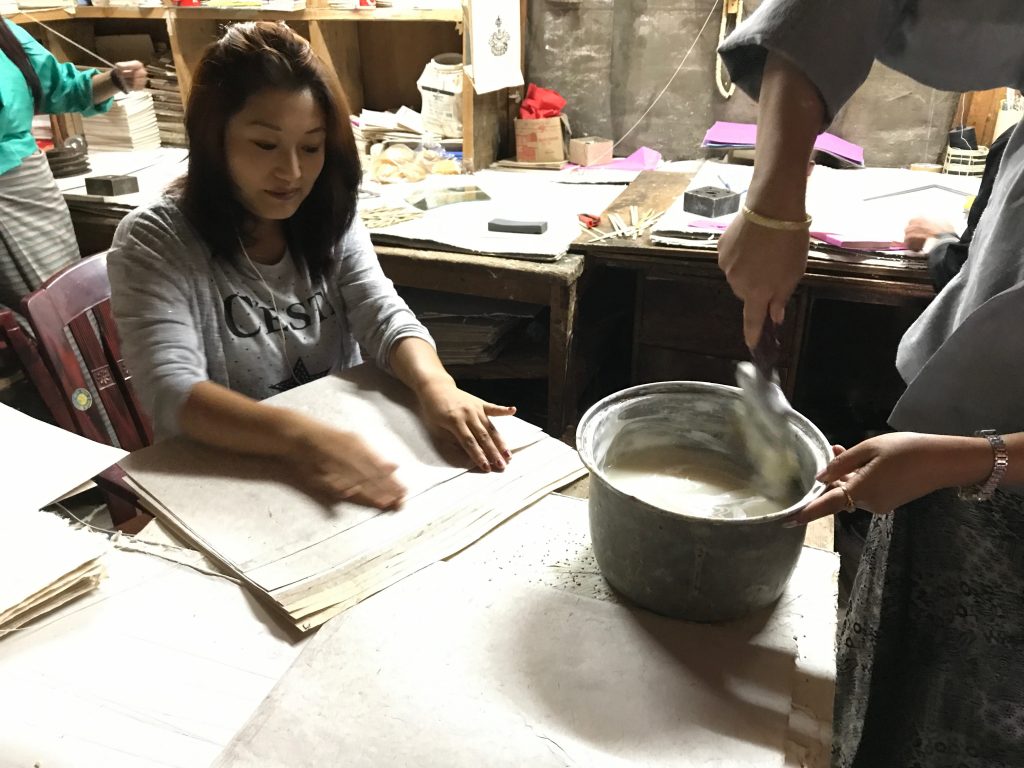
The shop (not pictured here) is full of lovely things that don’t seem wise to buy as we head off into two more months of heavy monsoon rains.
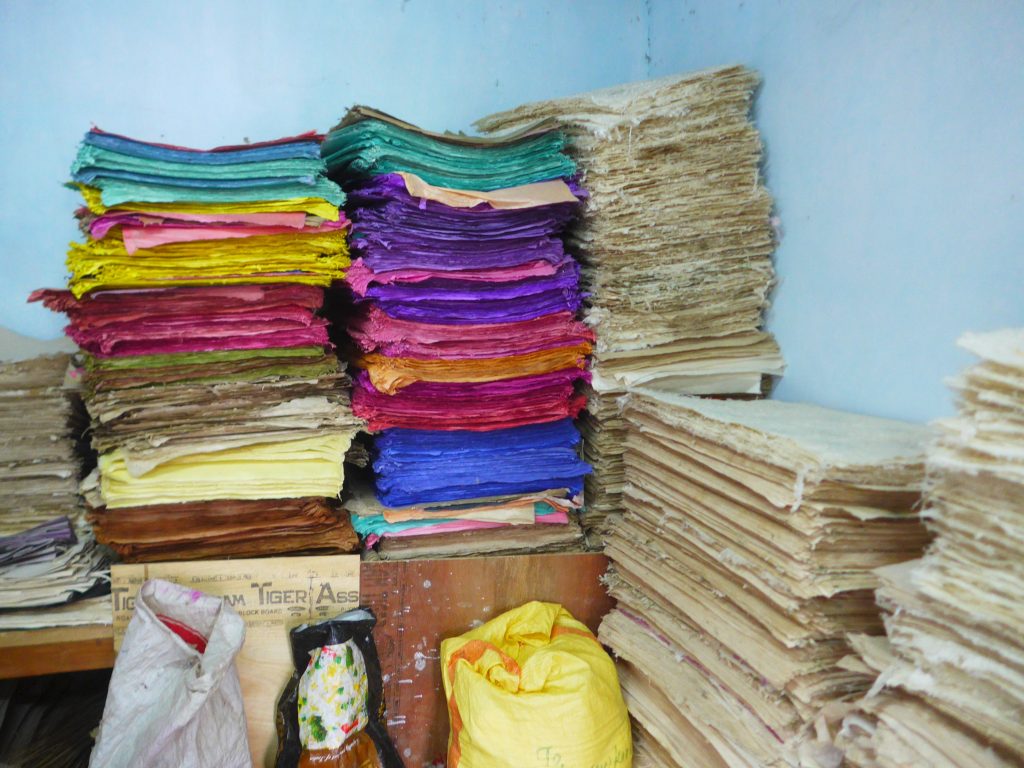
Then, despite my fatigue and reluctance, Ugyen took us off to Buddha Point, which was quite amazing (and despite what I thought I had read on various travel blogs, involved no hiking).
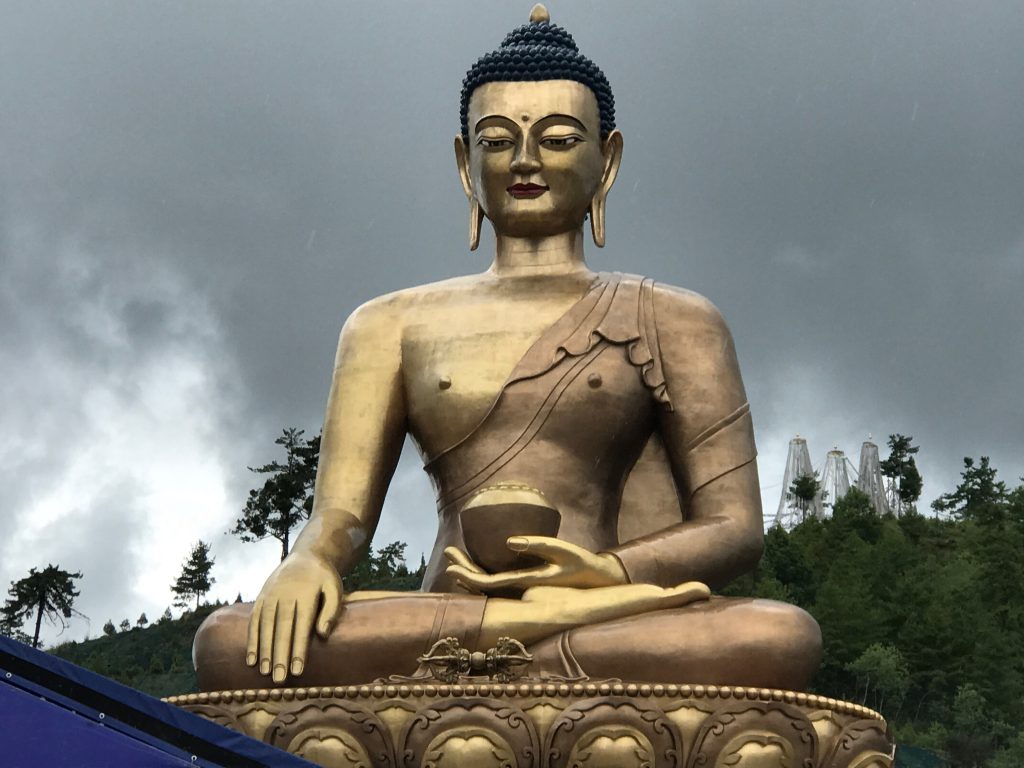
The figure of the Buddha sits on top of an ornate temple; the body contains thousands of smaller Buddhas (with room for many more).
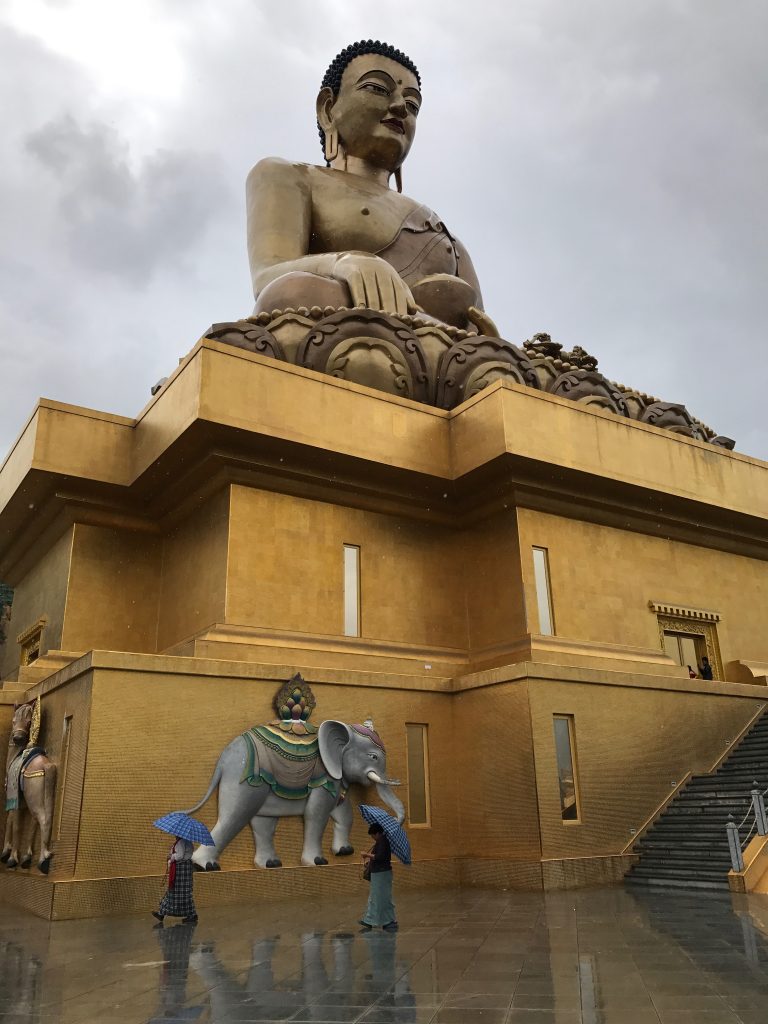
From the base of the statue, one looks down across the surrounding valleys.
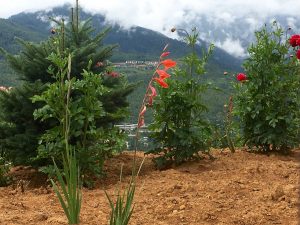
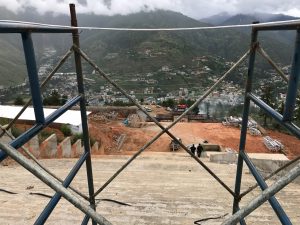
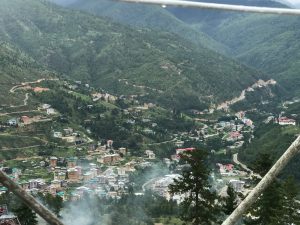
The statue is surrounded by dozens of gold statues of dakinis (Sanskrit) or energetic beings in female form, evocative of the movement of energy in space. In the Dzogchen practice of the Nyingma school of Vajrayana Buddhism, dakinis have three meanings: “As the Base, the ḍākinīs are the energies of life; as the Path, they are the activities of advanced practitioners; as the Fruit, they are the actionless activities of realized Masters.”
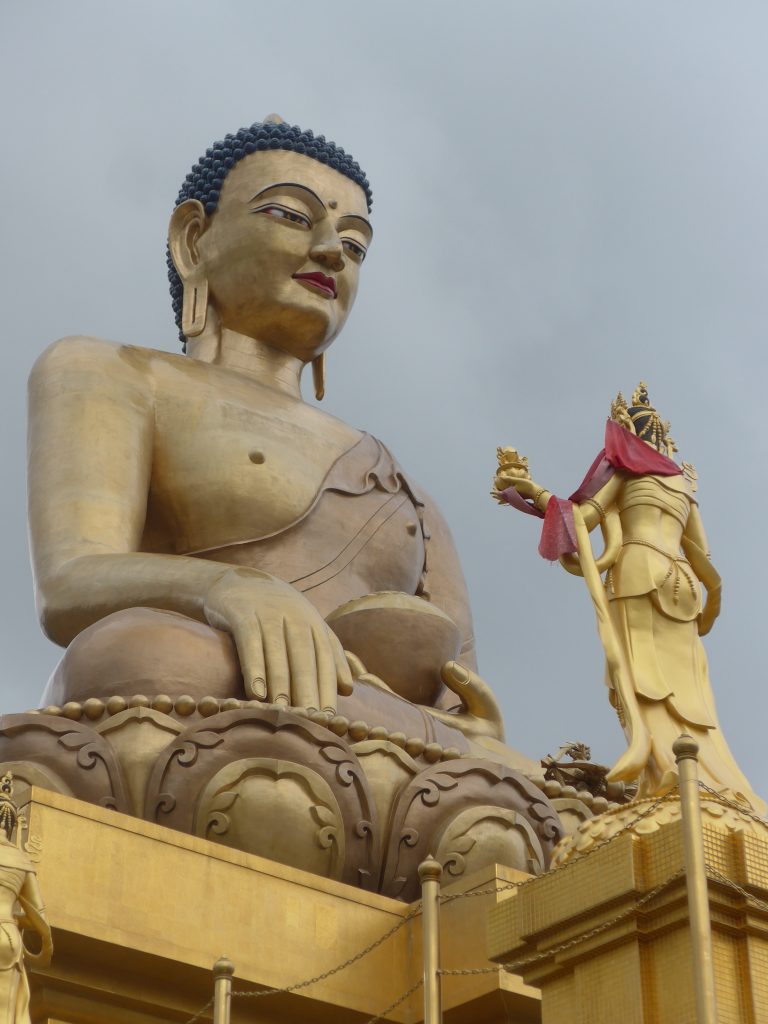
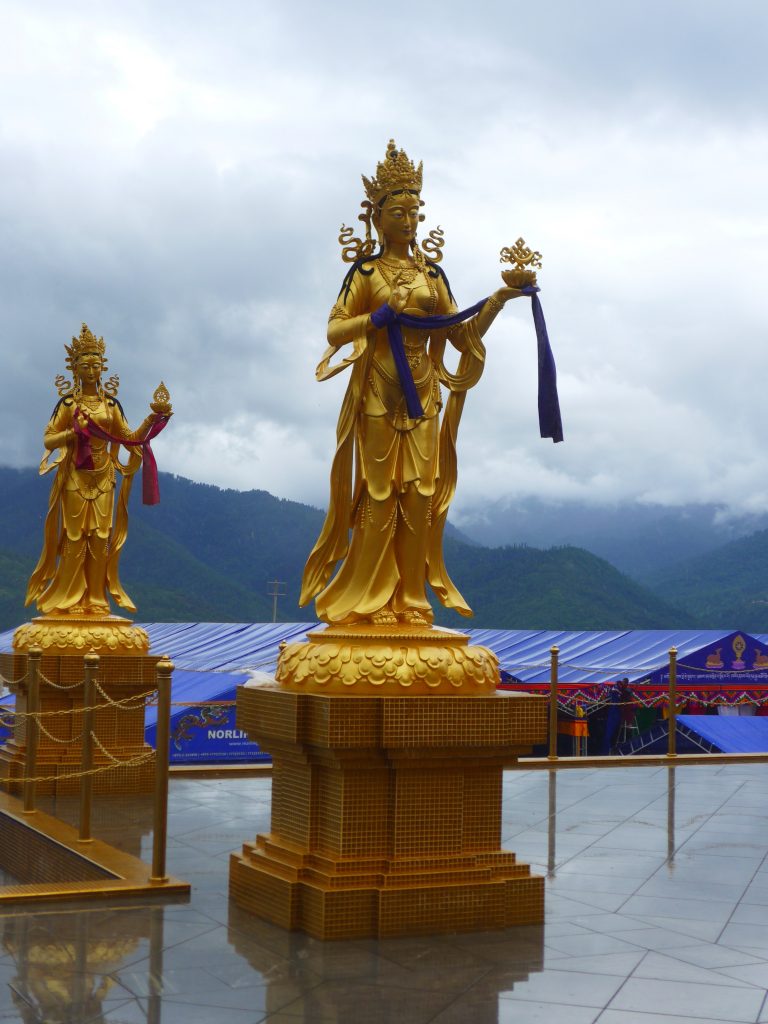
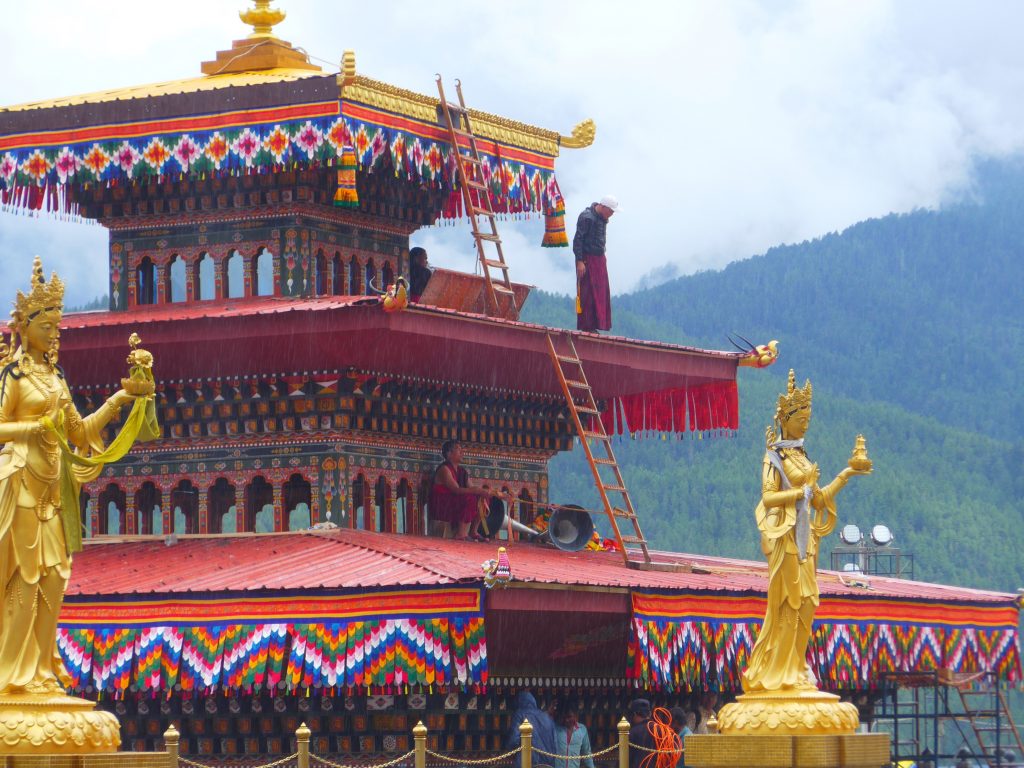
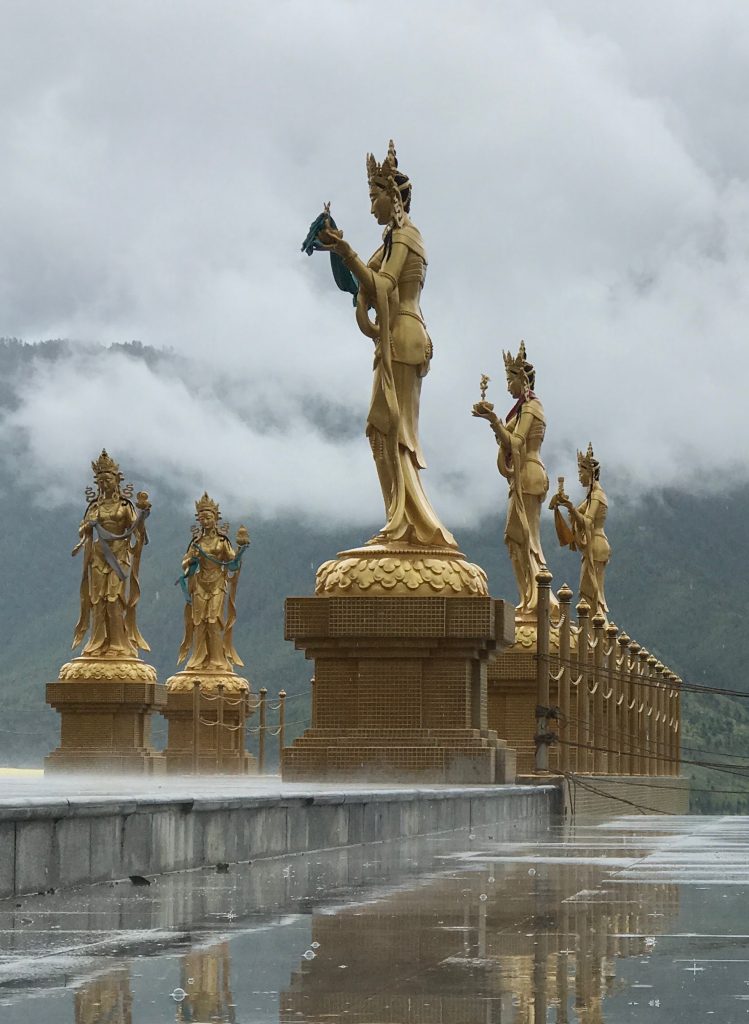
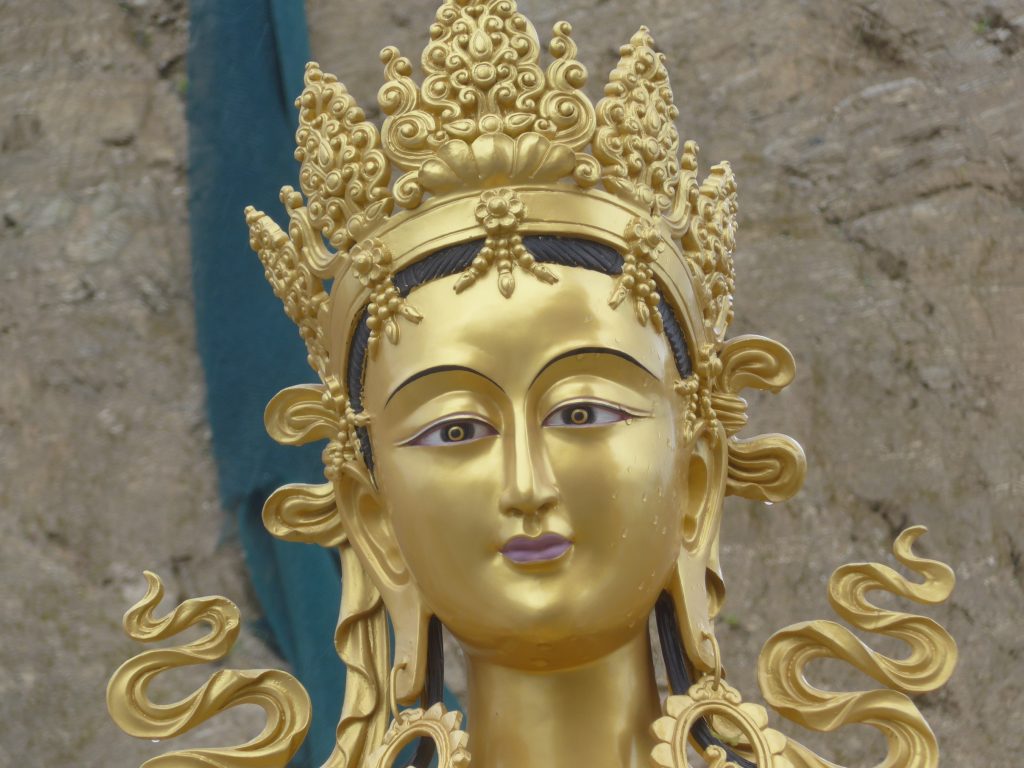
We came back early, to find the staff all excited about a visit by the fourth king. He has been in retreat for many years, so a sighting is very rare. We invited them into our room to peer down at the king from the balcony, but only Ugyen would come. The fourth king spoke to the student in a mix of English and Dzongkha. In English, he was urging them on to work hard for the sake of the nation. “The handsomest man in Bhutan,” the proprietor of the resort told us later. “After 30 years, I was able to meet him.” Clearly a red-letter day.
Afterwars, as Zoë and I were resting again, James called Pema and Wangda, our local contacts from former Fulbrighter Julia Karets. Only then did we realize that they live in Paro and we should have called them upon landing. Somehow from Shelly Daly’s blog, we developed the impression that they now lived in Thimphu. Pema was lovely and warm over the phone: James asked advice about getting Zoë connected with volunteer work in schools, and how he might go about renting a car in Kanglung. Pema gave him the number of her brother, who lives in Kanglung, and talked with her parents about possible rental cars.
